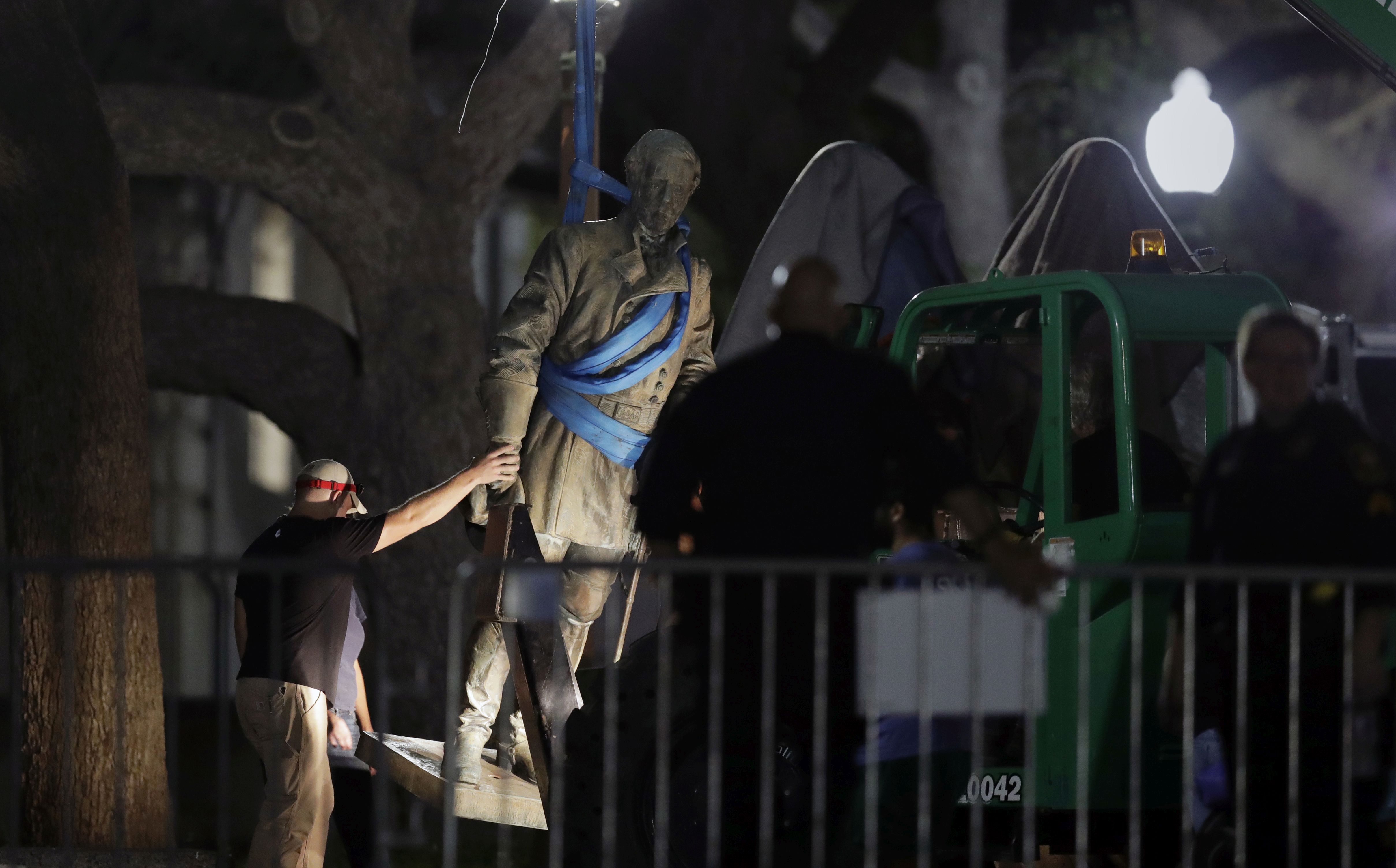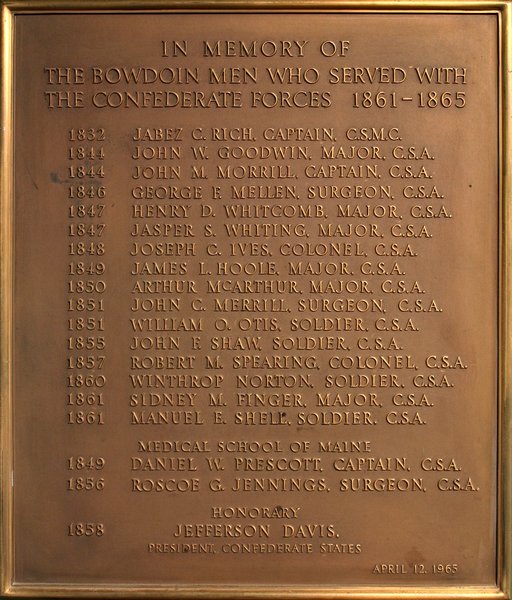
A statue of Confederate Gen. Robert E. Lee is removed from the University of Texas campus, early Monday morning in Austin, Texas. University of Texas President Greg Fenves ordered the immediate removal of statues of Robert E. Lee and other prominent Confederate figures from a main area of campus, saying such monuments have become "symbols of modern white supremacy and neo-Nazism." (AP Photo/Eric Gay)
Colleges across the country and at least one here in New England are taking down or relocating monuments and markers commemorating the Confederacy.
Some historians think this reckoning is long overdue because many of these statues went up during the Jim Crow era and the civil rights movement, in part, to intimidate black people.
Other historians worry college administrators are overreacting to the current political climate as more and more of these statues come down.
In the middle of the night, days before the start of classes, the University of Texas at Austin used cranes to remove four Confederate statues, including one of Gen. Robert E. Lee.
Administrators said the statues were removed under the cover of darkness for safety reasons, citing violence sparked by white supremacists on the University of Virginia campus in Charlottesville. They said the Confederate monuments erected during segregation had become "symbols of modern white supremacy and neo-Nazism."
In North Carolina, Duke University took down a statue of Lee after protesters toppled a Confederate statue at the county Courthouse. And at the University of North Carolina at Chapel Hill, some students are demanding the removal of a confederate memorial.
In Brunswick, Maine, Bowdoin College President Clayton Rose is taking a different approach.
"We're not removing anything," Rose told WGBH News.
Instead, Rose decided last week to relocate a bronze plaque featuring 18 names of Confederate alumni and Confederate President Jefferson Davis, who received an honorary degree from the school three years before the Civil War.
In 1965, the College installed the plaque in Memorial Hall, which was originally built to honor Union alumni.

Rose points to the violence in Charlottesville as the reason for moving the plaque across campus to the library.
"We always want to be very clear and acknowledge and be transparent about our history – both the good and the great, of which there is much, and the bad as well,” Rose said. “Our relationship with Jefferson Davis, the president of the Confederacy, one of the most odious institutions in the history of the world, would certainly rank as bad."
Bowdoin's history is strongly linked to the Civil War.
General Joshua Chamberlain, who helped secure the Union's victory at the Battle of Gettysburg, served as Bowdoin's president in the 1870s. One hundred years later, the Daughters of the Confederacy offered Bowdoin a major gift and asked the college to create an annual award named after Jefferson Davis.
Bowdoin issued that award until two years ago, when President Rose canceled it and returned the endowment gift.
Now, Rose says the plaque with Davis' name on it belongs in a library or archive.
"In a place where it can be displayed, viewed, studied, and the history surrounding it can be studied as well,” Rose said. “It doesn't belong in a place where anyone could reasonably assume that we were celebrating Jefferson Davis, which we certainly would never want to happen."
David Blight, who teaches Civil War and Reconstruction history at Yale University, says each of these cases of memorial or monument removals are local.
What troubles him, as a historian, is that the rapid removal and relocation of monuments and markers this month could be driven by a sense of panic.
"Mayors, governors, college presidents may start reacting so quickly for removal of these monuments without discussion or a debate,” Blight said. “In part, they might be doing it because they fear that the white supremacist groups are going to come to their town or come to their campus and raise hell."
Blight and other historians hope these memorials will be preserved in museums.
"The day will come when people will be studying this very historical moment," Blight said. “We have to keep asking ourselves why we don’t learn our past, assess the past, deal with our past, more fully in a more engaged way most of the time rather than only after some great shock of an event.”
At Bowdoin, administrators plan to leave the Confederate plaque in the library's special collections archive where it will be on display to students and the public for the foreseeable future.
UPDATE: The University of Texas is being sued for removing four Confederate statues from its Austin campus. The Sons of the Confederate Veterans have filed a lawsuit against the university. The school says the statues will be relocated to other areas on campus, including a museum.
Greater Boston: The Great Statue Debate: Should They Stay Or Should They Go?
Earlier: How Should Colleges Acknowledge Their Ties To Slavery?










